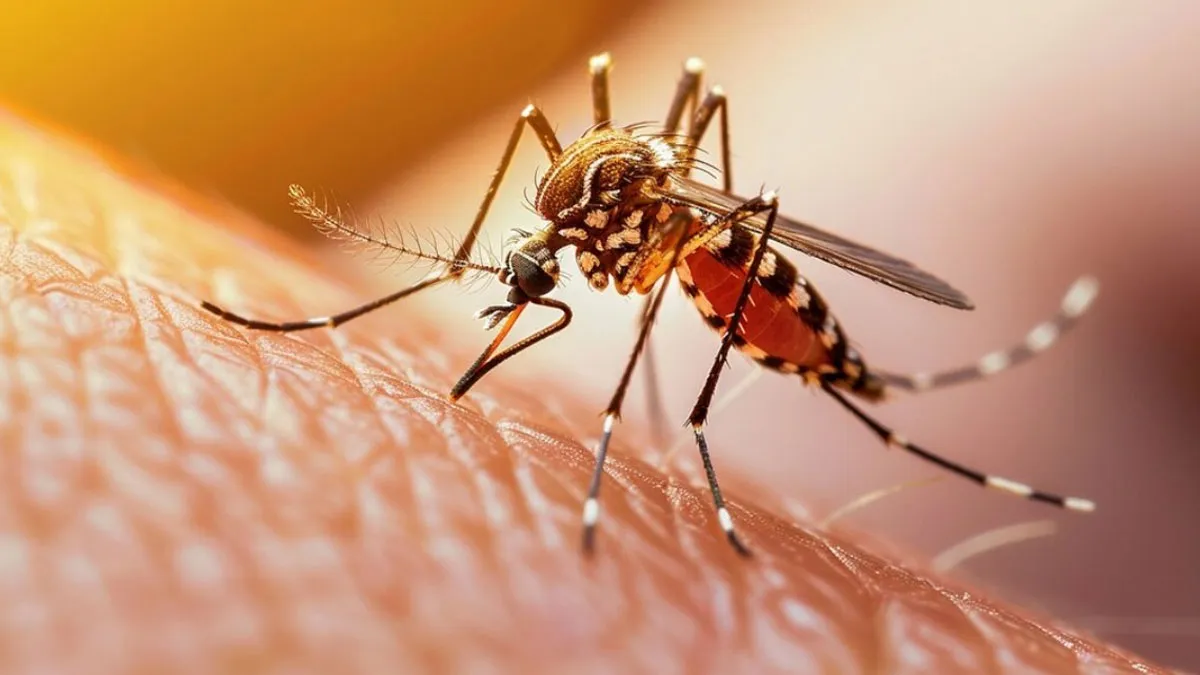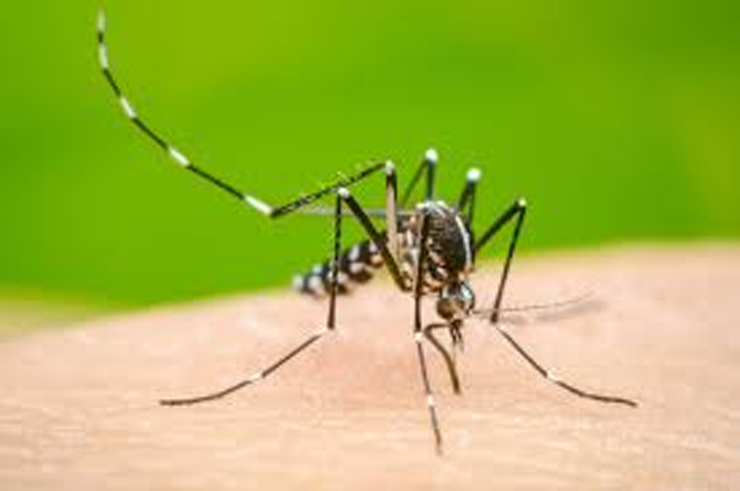
The alarming rise in dengue cases across Uttar Pradesh, particularly in its capital Lucknow, has become a pressing public health concern. In 2024 alone, over 2,100 cases have been reported, with October witnessing over 400 cases in just one week. This upward trend is not an isolated phenomenon but a reflection of broader global challenges exacerbated by climate change and rapid urbanisation.
Table of Content:-
Unpacking the Data: A Worsening Trend
The escalation in dengue cases in Lucknow over recent years highlights a troubling trajectory. The number of reported cases jumped from 1,104 in 2021 to 2,700 in 2023, with 2024 showing no signs of improvement. Hospitals in the city are stretched thin, with the demand for platelet units doubling from 200 to 400 daily to manage severe cases. Uttar Pradesh’s high population density, combined with stagnant water and inadequate urban infrastructure, provides an ideal environment for the Aedes aegypti mosquito to thrive.

The Climate Connection: Warming Nights and Shifting Rainfall
Climate change has significantly influenced the spread of dengue in Uttar Pradesh. Warmer temperatures, particularly at night, have extended the breeding season for mosquitoes. October 2024 saw the highest average night temperatures in over a century, with Lucknow recording nighttime temperatures 3°C above normal.
Meanwhile, heavy monsoon rains followed by delayed withdrawal have caused prolonged waterlogging, creating abundant breeding grounds. Research suggests that rising global temperatures and changing rainfall patterns are likely to expand dengue’s reach to previously unaffected regions, including northern India, Europe, and North America.
Also Read: Delhi Battles Pollution: GRAP-4 Enforced, CM Atishi Introduces Staggered Office Hours
Urbanisation and Mosquito Adaptability
Urbanisation has further compounded the problem by creating new habitats for mosquitoes. Discarded containers, clogged drains, and rooftop water tanks have become prime breeding sites in densely populated areas like Lucknow. Uttar Pradesh’s population density has surged from 155 people per sq. km in 1961 to 469 in 2021, amplifying the challenges of managing vector-borne diseases.
Healthcare Under Strain: Challenges on the Ground
The dengue surge has exposed significant gaps in Uttar Pradesh’s healthcare infrastructure. Hospitals like Balrampur Hospital are operating at full capacity, with dedicated dengue wards nearly overflowing. Blood banks face mounting pressure to meet the heightened demand for platelet transfusions, straining both public and private resources.
Efforts by the government to combat the crisis include increasing testing facilities from 83 in 2023 to 135 in 2024, along with awareness campaigns and fogging drives. However, these measures have proven insufficient against the scale of the outbreak. Rural areas, in particular, suffer from underreporting as many patients seek treatment in private clinics or resort to self-medication.
The Broader Implications for Public Health
The ongoing dengue crisis underscores the urgent need for climate-responsive strategies in public health. Predictive models that incorporate weather patterns and urbanisation trends could help anticipate outbreaks and enable timely interventions. Investments in healthcare infrastructure, such as expanding hospital capacity and ensuring adequate supplies of platelets, are critical.
Also Read: Jake Paul Vs. Mike Tyson: Can You Match Mike Tyson’s Fitness At 58 Or Is He One Of A Kind?
Collaboration between public and private healthcare providers is essential for scaling up testing and treatment facilities. Moreover, leveraging technology, including AI and IoT-based surveillance systems, can provide real-time data to track disease patterns and predict hotspots.
A Global Wake-Up Call
The dengue surge in Uttar Pradesh is a microcosm of a larger global issue. As climate change accelerates, regions previously unaffected by vector-borne diseases are now becoming vulnerable. Governments, healthcare providers, and industry leaders must act decisively to mitigate these risks through innovative, scalable solutions that address the root causes of outbreaks.
In the face of mounting public health challenges, Uttar Pradesh’s dengue crisis serves as a stark reminder of the interconnectedness between climate change, urbanisation, and human health. Addressing these issues will require collective effort and a long-term commitment to building resilient healthcare systems that can adapt to a changing world.
Also watch this video
How we keep this article up to date:
We work with experts and keep a close eye on the latest in health and wellness. Whenever there is a new research or helpful information, we update our articles with accurate and useful advice.
Current Version
